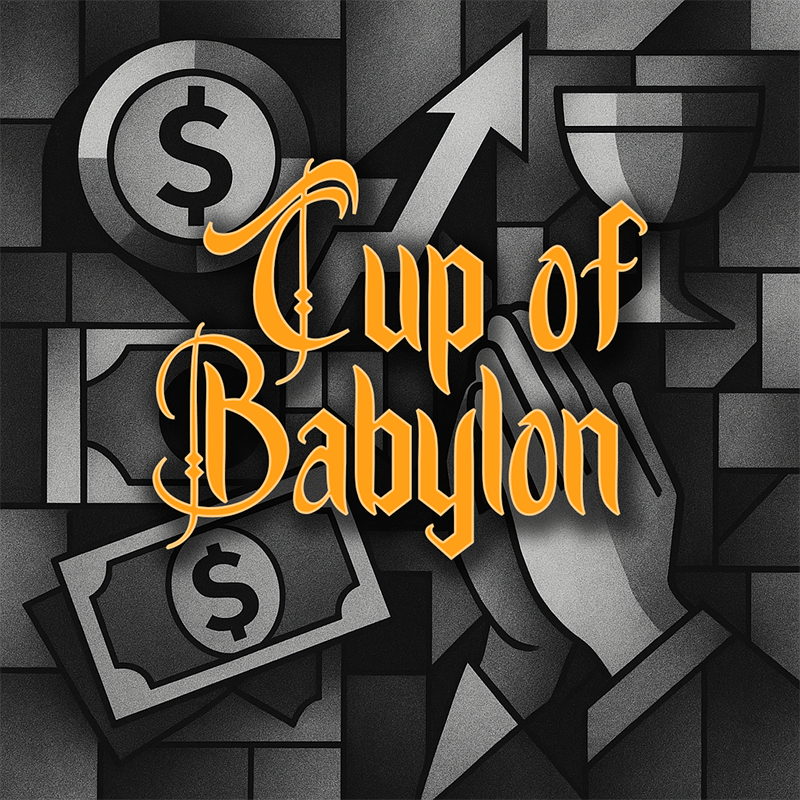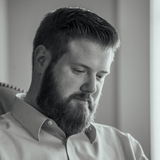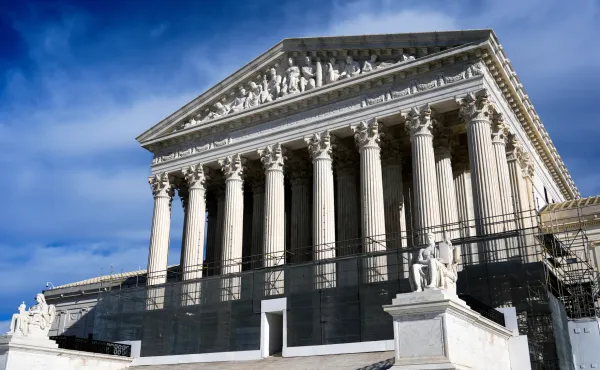The Cup of Babylon
“We live in an age intoxicated with acquisition—where want disguises itself as need, and excess is called blessing. But this is not faith—it’s bondage. True freedom comes when we embrace God’s boundaries as gifts, finding in His provision not limitation, but peace and lordship.”

About God’s Boundaries, Money, and Idolatry
Church family and friends,
I continue to carry the same concern I touched on last week—troubled in spirit over how we, as God’s people, are viewing the fickle economy of our times, our consumer appetites, our possessions, and our stewardship of what has been entrusted to us for the kingdom.
We are living in an age intoxicated with acquisition—where want disguises itself as need, and where excess is christened as blessing. Yet the path of irresponsible consumerism still leads, as it always has, toward bondage and collapse. I am disturbed to see how easily even sincere believers can drink from the same cup of the world—desiring and consuming beyond God’s boundaries, trusting in possessions for peace, and calling it faith.
This is not merely about money. It is about lordship—about who defines enough, who draws the boundary lines, and whose kingdom we are actually serving.
Several recent conversations have pressed all this deeper upon my heart—one recent talk with a friend of great gifts and devotion to Christ. With his permission, and without using names, I want to share what we saw together.
He had come under real strain from rising financial pressures and was seeking counsel—not for the first time. As we spread everything out before the Lord, the picture that emerged was deeply troubling. Loan payments of roughly $65,000 a year. Seventeen hundred a month in car payments alone. And his business, though once flourishing, is beginning to tighten.
As we prayed and talked, one question pressed upon us: How did we get here? How do sincere believers—hard-working, devoted, prayerful—find themselves in these chains? And why does it happen again and again among God’s people?
He had two new-model vehicles. The pickup—costly, but at least relevant to his trade—might be stretched into the category of prudent necessity. But the other “family” vehicle was another matter. It now sat $12,000 upside down in equity. I remembered him chatting with me before the purchase and casually asking for my opinion before making the decision. I advised otherwise. For a season, he listened—then set that counsel aside.
The SUV wasn’t just costly; it was a Z71 off-road machine. That entails a monthly payment of $900. Nine hundred that could have been compounding quietly toward a million dollars in retirement within two decades was instead vanishing into a depreciating idol already worth $12,000 less than its debt.
Why?
Why do we keep repeating this?
What must change in our thinking before we can be free?
We all should ask, not merely about this man’s situation, but about the mindset that keeps producing it. What intoxication has seized our culture—what spiritual drug—so that we keep walking willingly into financial bondage?
Two Views of Providence
There are only two fundamental ways to approach finances.
First, we can hold that our budget is absolute because it represents God’s providence—His boundaries and His will for our lives. From that heavenly gift, we steward carefully, faithfully, responsibly (1 Cor. 4:2).
Second, we can imagine that our self-defined “needs” are absolute—and act as though God’s role is to swipe the credit card behind us, a celestial sugar daddy who funds whatever we decide to want.
But living with disregard for God’s boundaries is not faith—it is sin. When we reject His limits, we reject His lordship. We are not merely the slothful servant who hid the gift in a napkin—we are a new kind of investor, who tosses his talent and napkin into an abyss (Luke 19:20-24). The seed that should have borne thirty, sixty, a hundredfold instead withers to half its worth in a year (Matt. 13:8; Mark 4:20).
Yes, true increase is measured in the intangibles—relationships, joy, peace, the spread of the gospel, the strength of the family—but the principle remains: waste is rebellion against Providence.
When Desire Becomes Idolatry
Why do we need that vehicle? Why can’t we be content driving a single-cab 1980s Datsun pickup and a 1992 Ford station wagon—or at least a modest minivan—until honest work and patient stewardship afford something better? Why are we willing to trade our grocery money, our retirement savings, and our peace of mind for a symbol?
The only answer is that such a purchase fills a need it has no right to fill. The vehicle is not serving us: it is serving our ego. It props up our sense of identity, bolsters insecurity, and provides an illusion of worth. We wear it as a costume of importance. And if that is true, how is it not an idol?
Are we not called to be conformed to the image of Christ (Rom. 8:29)?
Are we not determined to know nothing except Jesus Christ and Him crucified (1 Cor. 2:2)?
Are we not commanded to use this world’s goods for eternal purposes rather than to furnish our pride (1 John 2:15–17)?
If we cannot find deep security in our identity as blood-bought children of God—loved, accepted, equipped by His Spirit, and joined to His Body—then whatever we use to substitute for that identity is an idol.
I thank God that this brother was humble and open to considering these things. May we all be so. Otherwise, we will go on investing in what moth and rust destroy and what thieves break in to steal (Matt. 6:19–20), while neglecting the priceless, eternal treasure of purpose, peace, and fellowship in Christ.
The Loss That Becomes Gain
Paul said it plainly: “Whatever was gain to me, I now count as loss, that I may gain Christ and be found in Him” (Phil. 3:7–9). The writer of Hebrews reminds us that Moses refused the identity the world offered him. Though entitled to be called a prince of Egypt, he said, “Not me.” He chose to bear reproach with the people of God rather than enjoy the passing pleasures of sin for a season, because “he looked to Him who is invisible” (Heb. 11:24-27).
These are not merely stories of ancient faith—they are mirrors held to our generation. What labels, what luxuries, what illusions of success must we refuse, to bear the reproach of Christ today?
Faithful with Little
Jesus Himself teaches that money and possessions have eternal purpose. When we use them to serve eternal ends—to build the kingdom, strengthen relationships, and advance the gospel—we are being faithful with little (Luke 16:9–11). In other words, when we exchange the possessions we cannot keep for the relationships we cannot lose, we discover the joy of heaven’s economy.
“Make friends for yourselves by your use of unrighteous mammon, so that when it [money] fails, they [your kingdom friends] may receive you into everlasting dwellings [heaven]” (Luke 16:9).
Paul speaks of three righteous uses of wealth:
- Generational sustainability—“Parents lay up for their children” (2 Cor. 12:14; Prov. 13:22).
- Providing for one’s household—“If anyone does not provide for his own, he has denied the faith” (1 Tim. 5:8).
- Furthering the gospel—Partnership in giving and receiving that abounds to fruit on our account (Phil. 4:15-17).
Beyond these, money serves no good purpose. When it becomes our source of peace, our symbol of belonging, or our measure of identity, it becomes a rival god. And the name of that god is Mammon.
Boundaries as Lordship
God, help us.
Help us see that Your provision is absolute—and our perceived needs are not.
Our wants, preferences, and indulgences are not sovereign.
When we push beyond the limits of Your provision in our finances, we commit the same sin as when we transgress Your limits in appetite, drink, or morality (Gal. 5:19–23).
Your boundaries reveal Your lordship.
They are not prisons but places of safety and grace.
“The boundary lines have fallen for me in pleasant places” (Ps. 16:6).
To live beyond His provision is to live outside His rule. To step beyond His boundaries is to forfeit His peace.
The Call to Sobriety
We must throw aside the cup of Babylon’s intoxication (Rev. 17:2-4). We must spoil Egypt, but never mistake the spoil for the Promised Land (Exod. 12:36). Every blessing, every tool, every possession must be used only insofar as it carries us closer to that eternal country—a land of enduring relationships, of covenant community, of righteousness and peace under the kingship of Christ.
He is enough. He is sufficient. He is all in all.
May God grant us the courage to break the spell of false need, to embrace His boundaries as gifts, and to find in His provision not limitation but liberty. For in surrendering to His lordship, we discover what Babylon never offers and Mammon never delivers: the unshakeable rest of hearts made whole in Him.
If you’re limping under the weight of financial stress, speak to one another. Seek help within your congregation. Create a plan, build a budget, and sanctify your finances for the kingdom—and yourself to the boundaries of God’s provision. Turn that guilt, that quiet seepage of grace, into repentance and obedience, bringing about Christ’s dominion and the peace and fruit of the Holy Spirit.





